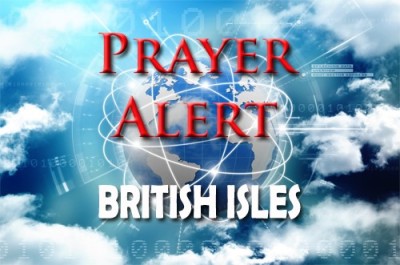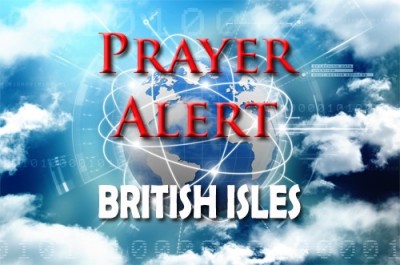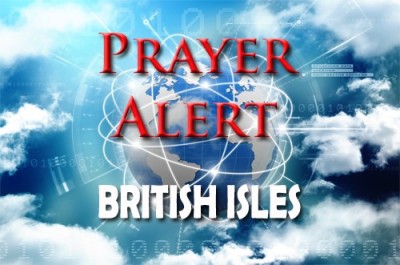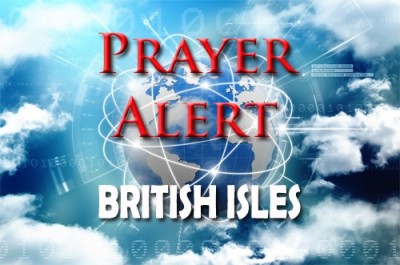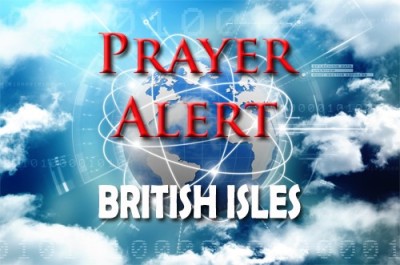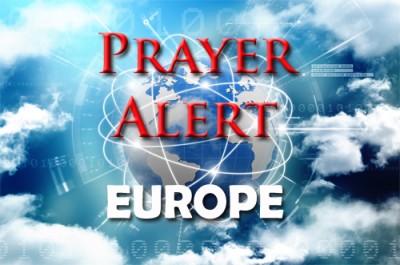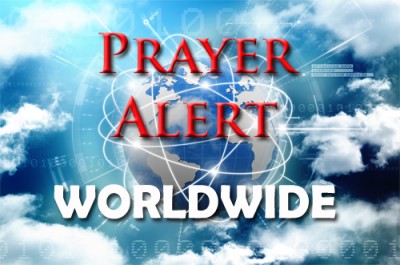Royals lead VE Day 80th anniversary celebrations
08 May 2025Britain commemorated the 80th anniversary of Victory in Europe (VE) Day with grand events led by the Royal Family. Crowds lined the Mall in London to witness an RAF flypast, echoing King George VI’s historic 1945 balcony appearance. The King and Queen, joined by senior royals and veterans, paid tribute to those who fought for freedom. Prince George, 11, attended his first VE Day tea party with veterans, showing keen interest in their stories. Across the UK, tea parties and street celebrations honoured the sacrifices of wartime generations. The Bengali Association hosted a vibrant event in London’s Docklands, reflecting the vital contributions of Commonwealth soldiers. Veterans shared memories of wartime bravery, from the D-Day landings to service in Churchill’s secret army. Keir Starmer underscored the nation's enduring gratitude. These commemorations, blending solemn remembrance and joyful celebration, highlighted the resilience and unity forged in World War 2 - a legacy which continues to shape Britain’s national identity and inspire future generations.
Trump set to announce UK - USA trade deal
08 May 2025Donald Trump is poised to announce a significant new trade agreement between the USA and the United Kingdom, marking a key step forward in post-Brexit trade relations. A ‘heads of terms agreement’ - essentially a preliminary framework - has been reached, laying the groundwork for a full trade deal. The announcement, expected from the Oval Office, follows weeks of high-level discussions amid global trade tensions. While the deal’s full details are pending, it is anticipated to address tariff reductions, particularly on UK steel and car exports, sectors hit hard by US tariffs. The British pound rose 0.4% against the US dollar following reports of the agreement. The deal comes as the USA also continues trade negotiations with other major economies, including China, South Korea, and Japan. UK officials have stressed the importance of balancing strong transatlantic ties with ongoing EU relations. The agreement is seen as a boost for UK industry and a strategic move to strengthen bilateral economic partnerships in an uncertain global climate. See also
Five Iranian men have been arrested in the UK on suspicion of plotting a terrorist attack, with the Israeli embassy in London understood to have been the target. Although police have not officially confirmed the embassy as the focus, multiple sources, including the BBC, report this as accurate. The suspects, aged between 24 and 46, were arrested in Swindon, west London, Stockport, Rochdale, and Manchester. Four remain in custody under the Terrorism Act; one has been released on bail. Counter-terrorism officers have searched several properties across England, and the investigation is described as fast-moving and sensitive. Iran has denied involvement but offered cooperation. Officials warn that Iranian-backed activities in the UK are often underestimated, with influence spread via religious institutes, media, and charities aligned with Tehran’s aims. UK authorities have praised the swift response of hundreds of officers involved, highlighting the seriousness of this threat. Citizens are urged to remain vigilant as investigations continue, with further updates expected as operational security allows.
Labour MPs are warning of a brewing rebellion over government plans to deepen cuts to the welfare budget this autumn. Keir Starmer and Rachel Reeves face growing dissent after announcing in March a £5 billion reduction in benefits, with additional cuts reportedly under consideration. The proposals, which include tightening eligibility for personal independence payments (PIP) and cuts to universal credit, have sparked concerns across the party. Backbenchers and activists report rising public anger, especially following poor results in local elections and the Runcorn by-election. Critics warn that further cuts could drive more people into poverty, particularly affecting disabled individuals and communities already struggling with high rates of benefit dependence. Two Labour MPs have vowed to oppose the reforms, emphasising the party’s responsibility to protect society’s most vulnerable. Disability advocates, arguing that the cuts prioritise financial savings over people’s wellbeing, are urging the Government to reconsider. Ministers, however, insist reforms are necessary to sustain the welfare system for the future.
The National Cyber Security Centre (NCSC) has issued a warning following recent cyber attacks targeting major retailers including Marks & Spencer, Co-op, and Harrods. Criminal hackers have reportedly impersonated IT help desks to infiltrate company systems, a tactic known as social engineering. The NCSC urges organisations to review their password reset procedures and authentication processes, especially for senior staff with high-level access. Cybersecurity experts advise using multi-layered verification methods, including codewords, to prevent breaches. Although an anonymous group claiming responsibility, calling themselves DragonForce, denies links to the notorious Scattered Spider hacking collective, the methods used are strikingly similar. These hackers have previously carried out high-profile attacks, including on Las Vegas casinos. The NCSC emphasises vigilance against risky logins and unusual account activity. Law enforcement is investigating, with ongoing efforts to confirm links between recent attacks. The Co-op has admitted customer data was compromised, while M\&S’s breach is under investigation. Businesses are reminded to bolster security, as this wave of attacks highlights the evolving threat landscape in today’s digital world.
The Church of Scotland is set to become the first major UK denomination to adopt a neutral stance on assisted dying, marking a significant shift from its historic opposition. This move comes ahead of a crucial Scottish Parliament vote on a private member’s bill seeking to legalise assisted dying for terminally ill individuals with mental capacity. While the bill has strict safeguards - requiring approval from two doctors - critics warn of potential future loosening of eligibility criteria. Scotland’s first minister, John Swinney, a Church of Scotland member, has voiced concerns and is expected to vote against the bill. Proponents argue the change reflects broad public support, with polls indicating that two-thirds of Scots back assisted dying. Humanist and faith-based campaigners alike see the church’s neutral stance as bridging divides between secular and religious perspectives. In contrast, other UK faith groups remain firmly opposed, citing fears of abuse and coercion. As debate intensifies, the Church’s position is seen as pivotal in shaping future discussions on compassionate end-of-life choices in Scotland.
Vatican: a new pope is elected
08 May 2025On 8 May Pope Leo XIV, born Robert Francis Prevost in Chicago in 1955, was elected as the new head of the Catholic Church, becoming the first North American, American, and Peruvian pope. A member of the Order of Saint Augustine, he is also the first Augustinian pope in modern times. Prevost’s career included decades of service in Peru as a pastor, seminary educator, and diocesan official, before rising within his order’s global leadership. He later served as Bishop of Chiclayo and was made a cardinal in 2023, shortly before becoming Prefect of the Dicastery for Bishops - a critical Vatican post. His wide linguistic fluency and diverse cultural experience positioned him as a bridge between the global North and South. His leadership will be closely watched for how he navigates past controversies and leads a Church increasingly shaped by voices from the global south.
On 8 May Pakistan claimed it shot down twelve Indian drones overnight amid escalating tensions following Indian airstrikes which have killed 31 people across Pakistan. General Ahmed Sharif Chaudhry, describing India’s actions as a ‘blatant act of aggression’, said the drone incursions had targeted major cities including Rawalpindi, where Pakistan’s military has its headquarters. Flights have been suspended in major cities of both nations, and a state of emergency declared in Pakistan’s Sindh region. India has not responded to the drone accusations but claimed its earlier strikes targeted terrorist infrastructure connected with the deadly militant attack in Kashmir on 22 April, even though Pakistan has denied involvement in it. Pakistan's prime minister has vowed revenge, while pressure builds on its army chief to respond. Both sides have exchanged shellfire along the contested Kashmir border. Iran has offered to mediate, as global concern mounts over the risk of broader conflict between the nuclear-armed neighbours.

